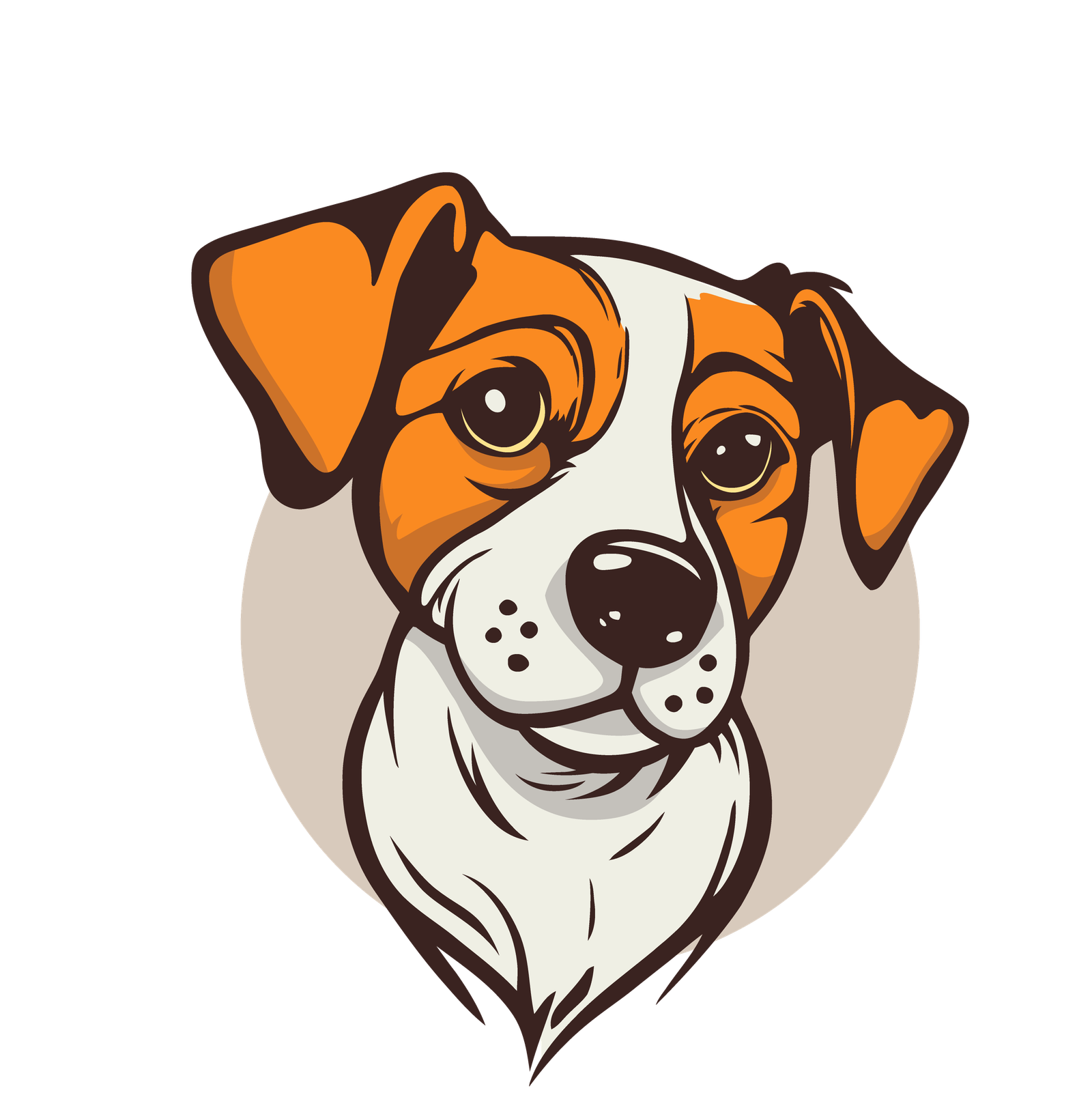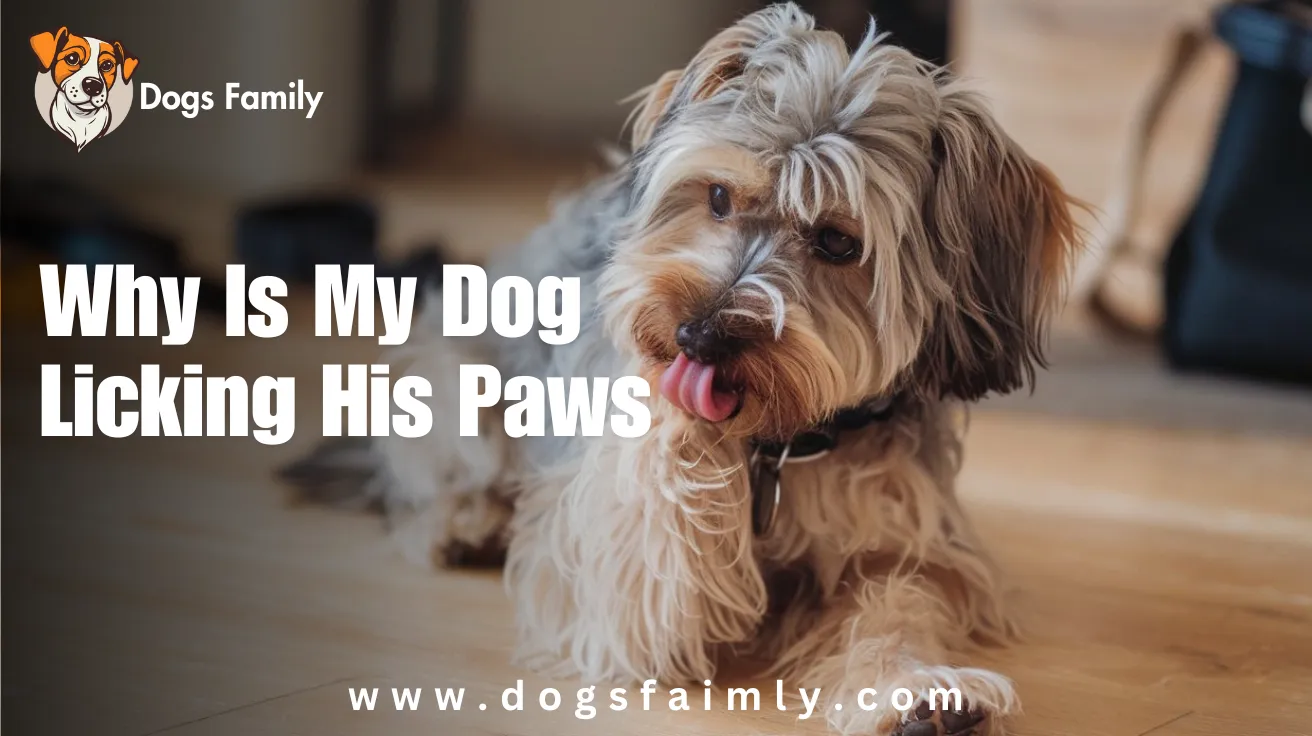Understanding the Behavior
Why Is My Dog Licking His Paws? Have you ever noticed your dog spending an unusually long time licking his paws? This behavior might seem harmless at first, but it can indicate a range of issues, from allergies to boredom. In this article, we will explore the various reasons why dogs lick their paws, what it means for their health, and how to address the issue effectively.
Common Reasons Why Is My Dog Licking His Paws
1. Allergies
One of the most common reasons for paw licking is allergies. Dogs can be allergic to various substances, including pollen, grass, dust mites, or certain foods. When a dog comes into contact with an allergen, he may lick his paws to alleviate the itching or discomfort.
For example, I once had a friend whose Golden Retriever, Max, started licking his paws obsessively in spring. After a vet visit, they discovered he had seasonal allergies. Switching to a hypoallergenic dog food helped, but they also implemented a routine of wiping Max’s paws after walks to minimize allergens.
2. Irritation or Injury
Sometimes, paw licking indicates irritation or an injury. Your dog may have a thorn, splinter, or even a cut on his paw. If he licks a specific area repeatedly, check for any visible injuries or swelling.
In another instance, my neighbor’s dog, Bella, kept licking her front paw. After investigating, they found a small rock lodged between her pads. Once they removed it, her licking stopped almost immediately.
3. Boredom or Anxiety
Dogs are creatures of habit and need mental stimulation. If a dog feels bored or anxious, he may lick his paws as a way to cope. This behavior can be a form of self-soothing or simply a way to pass the time.
A few years ago, I fostered a rescue dog named Toby. Initially, he would lick his paws incessantly, likely due to the stress of moving to a new environment. Once I established a routine with playtime and training, his licking significantly decreased.
4. Fungal or Bacterial Infections
Infections can also cause excessive paw licking. Fungal infections, like yeast infections, often lead to itching and discomfort. Bacterial infections can result from scratches or irritations that allow bacteria to enter.
If you suspect an infection, watch for redness, swelling, or a foul odor. A visit to the vet is essential, as they can provide appropriate treatment, such as medicated shampoos or antibiotics.
Steps to Address Excessive Paw Licking
Step 1: Observe the Behavior
Begin by observing when and how often your dog licks his paws. Note if he licks only after walks, during certain times of the year, or if there’s a specific trigger. This information can help you and your vet identify the underlying issue.
Step 2: Check for Injuries
Examine your dog’s paws for any visible injuries, such as cuts, scrapes, or foreign objects. Gently manipulate the paw to see if there’s any sensitivity. If you find something, carefully remove it and monitor the area for signs of infection.
Step 3: Maintain Hygiene
Regularly clean your dog’s paws, especially after walks. This practice helps remove allergens, dirt, and debris that could contribute to licking. Consider using a pet-safe wipe or a damp cloth to clean their paws thoroughly.
Step 4: Manage Allergies
If you suspect allergies, consult your veterinarian. They may recommend an elimination diet or allergy testing to pinpoint specific triggers. Additionally, they may suggest medications, such as antihistamines or corticosteroids, to manage symptoms.
Step 5: Provide Mental Stimulation
If boredom or anxiety seems to be the cause, provide plenty of mental and physical stimulation. Engage your dog with toys, interactive games, and regular exercise. Simple activities like puzzle toys or scent games can keep your dog entertained and focused.
When to Visit the Vet
While occasional paw licking can be normal, you should consult a veterinarian if:
- The licking is excessive and persistent.
- Did you notice any redness, swelling, or foul odor?
- Your dog appears to be in pain or discomfort.
- The behavior is accompanied by other symptoms, such as vomiting or diarrhea.
A veterinarian can perform a thorough examination and recommend appropriate treatment, ensuring your dog stays healthy and comfortable.
Conclusion: Understanding and Addressing Paw Licking
Why Is My Dog Licking His Paws, In summary, while paw licking can be a common behavior among dogs, it’s essential to understand the underlying reasons. Whether it’s due to allergies, irritation, boredom, or infections, identifying the cause can help you take the right steps to address the issue.
Why Is My Dog Licking His Paws? By maintaining proper hygiene, providing mental stimulation, and consulting your veterinarian when necessary, you can ensure your furry friend leads a happy, healthy life. If you notice persistent licking or any concerning signs, don’t hesitate to seek professional advice.
Why Is My Dog Licking His Paws? For more information on dog health and behavior, consider checking resources like Dogs Faimly, Dogs Daily Hub, American Kennel Club, or PetMD. Remember, your dog’s well-being is worth the attention!
Hyperlinks:
Why is My Dog Throwing Up White Foam?
DAPP Vaccine for Dogs: A Comprehensive Guide
Why does my dog lick his front legs so much?
If your dog is frequently licking his front legs, it could indicate several issues. Common reasons include allergies to environmental factors like pollen or dust, leading to itching and irritation. He may also be addressing discomfort from an injury, such as a scrape or thorn. Another possibility is boredom or anxiety, as some dogs lick as a self-soothing mechanism. Additionally, fungal or bacterial infections might cause persistent licking. Observe for signs like redness or swelling, and if the behavior continues, consult your veterinarian for a proper diagnosis and treatment to ensure your dog’s comfort and health.
Why is my dog biting at his paws?
If your dog is biting at his paws, it may be due to several reasons. Common causes include allergies, which can lead to itching and discomfort, prompting him to bite. He might also have an injury, such as a cut or thorn, causing pain. Anxiety or boredom can also drive a dog to chew on his paws as a coping mechanism. Additionally, fungal or bacterial infections could be at play. Observe your dog for other symptoms like redness or swelling, and if the biting persists, consult your veterinarian for a proper evaluation and treatment to ensure his well-being.
What is your dog trying to warn about when they lick their paws?
When your dog licks their paws, it may signal discomfort or distress. This behavior can indicate allergies, as licking helps soothe itchy skin caused by allergens like pollen or dust. It may also be a response to pain from an injury, such as a cut or foreign object lodged between the pads. Additionally, excessive licking can hint at anxiety or boredom, as dogs may engage in this behavior to self-soothe. If you notice persistent licking, accompanied by redness or swelling, it’s essential to consult your veterinarian to address any underlying health issues effectively.

